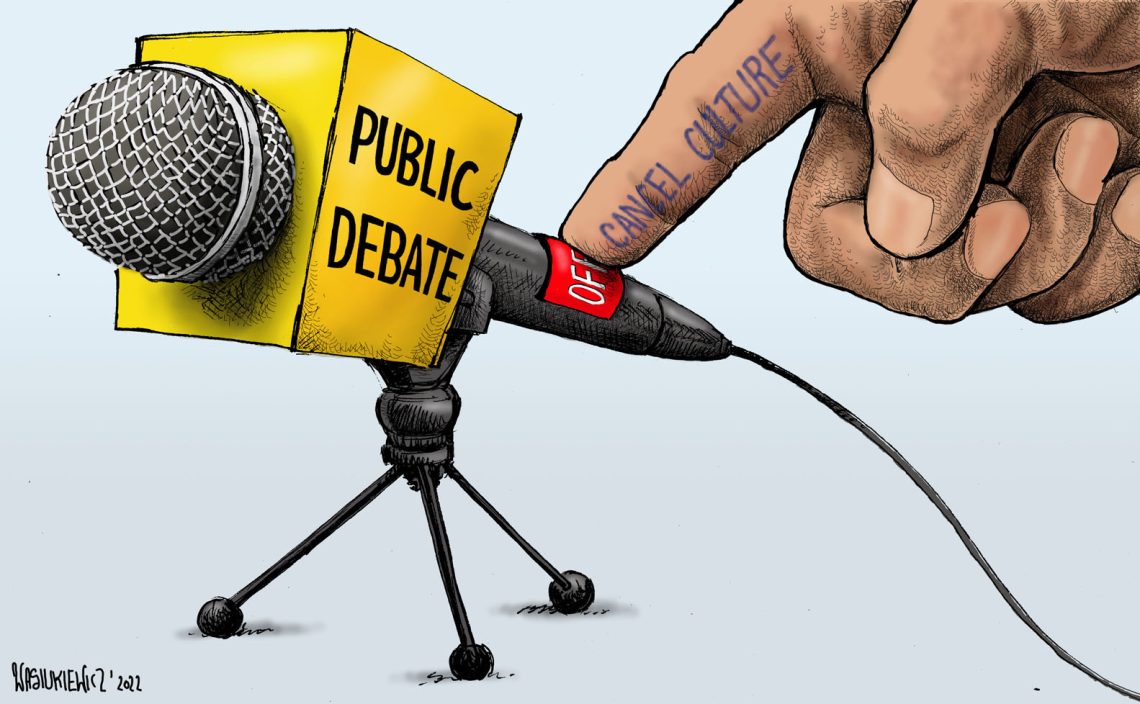Freedom of opinion and fake news
For democracy to flourish, we need to be more tolerant of opposing views.

The term “fake news” has come to dominate society and the media. The definition of fake news is difficult to come by and is open to subjective assessment. There are plenty of examples throughout history of facts initially condemned by most people (even scientists) and whose dissemination was forbidden and criminalized, but which ended up proving true. One striking case is Galileo’s promotion of Copernican heliocentrism. Who decides what is fake news and what is not?
Over centuries, the free world gradually adopted the concept of freedom of opinion. It is one of humanity’s great achievements and allowed open society to develop. The competition of ideas continues to enrich humankind. Democracy feeds off divergent opinions and open debate, and even tolerates strongly conflicting or grotesque-appearing arguments. It must even tolerate instances of stupidity and when people ignore facts. A healthy, confident democracy should be able to cope with such factors.
Growing intolerance
Tolerance is an important foundation of a free society. Unfortunately, intolerance toward contrary opinions is growing. Cancel culture, support for particular views on gender, and, in the United States, the rise of critical race theory are radically suppressing debate and differing ideas. Twitter and Facebook censor certain messages, not limited to hate speech or other illegal activities.
Social media is widely blamed as the main source of fake news because there is no gatekeeper who limits what people can say. But realistically speaking, plenty of politicians, traditional media and public institutions – at the national and supranational level – frequently ignore facts or interpret them in the wrong way. This is certainly not good, but it normally backfires eventually. One example of this is how the head of the European Central Bank continues to declare that inflation will be “contained” – a statement that was accepted without question by most in the mainstream media.
This phenomenon shows the danger we face. The information behind this “news” was falsely interpreted or analyzed, based either on a hidden agenda or mere incompetence. The wrong policy decisions were made, and the damage was enormous.
Fake news debate
The debate on what fake news is, where it appears and what should be done about it rages on. Most people engaging in this debate agree that democracy thrives – as mentioned above – on an open exchange of differing opinions. However, in intellectual and social-science circles, as well as in established Western political parties, there is wide consensus that this discussion must take place within the parameters of commonly accepted facts and based on a certain social consensus. According to this view, obvious lies – especially those that do societal harm – should be eliminated.
We need to trust in citizens’ sound judgment.
We can agree that one should not lie. But who decides which lie can be disseminated and which cannot? Which lies are “obvious” and how does one manage the damage they do? As these questions are pushed aside, a “moralistic intolerance” is increasingly becoming apparent. This stance opens the door for arbitrary views and decisions. Canceling and intolerance present a big challenge to freedom.
Instead, we should increase the quality of information that citizens receive, decrease intellectual narrow-mindedness and reject the “harmonization” of opinions. Just a few months ago, people who doubted the effectiveness of vaccines against Covid-19 were marginalized and called “covidiots.” In the meantime, it was shown that while the vaccines did increase protection against the virus, breakthrough infections could occur. The arrogant way in which the doubters were demeaned, however, increased their opposition to the vaccine.
Politicians must learn to be clearer in what they say and more open in debate. It has come to a dangerous point when a president of the European Commission says, “When it becomes serious, you have to know how to lie” and a German chancellor declares that her decisions are “alternativlos” (without any alternative). At least we can recognize that the Commission president’s remarks contained a grain of sound cynicism. But not only do such statements produce fake “facts,” which naturally lead to fake news, they also create fertile ground for fake news to flourish.
A show of strength
Western Europe should also show strength in the face of the war in Ukraine. Russian news channels such as Russia Today have been blocked in many European countries. Yes, the quality of its news is highly debatable, some of its stories have been clearly wrong and its interpretations have distorted the truth. But the question is whether a healthy, free society needs this act of censorship.
Banning such channels creates more conspiracy theories than would showing benign tolerance, which is a sign of strength. Most people – especially those entitled to vote – should be able to distinguish nonsense from reality. The minority that believes the disinformation will only see the banning of such media as support for their unreasonable views.
We need to trust in citizens’ sound judgment. Frequently, they have more common sense than the arrogant, self-declared “moral judges” in intellectual circles, positions of authority, academia and politics. Also, the media should be more courageous. It should think creatively and step out of its established comfort zone. Most importantly, it should be more tolerant.
